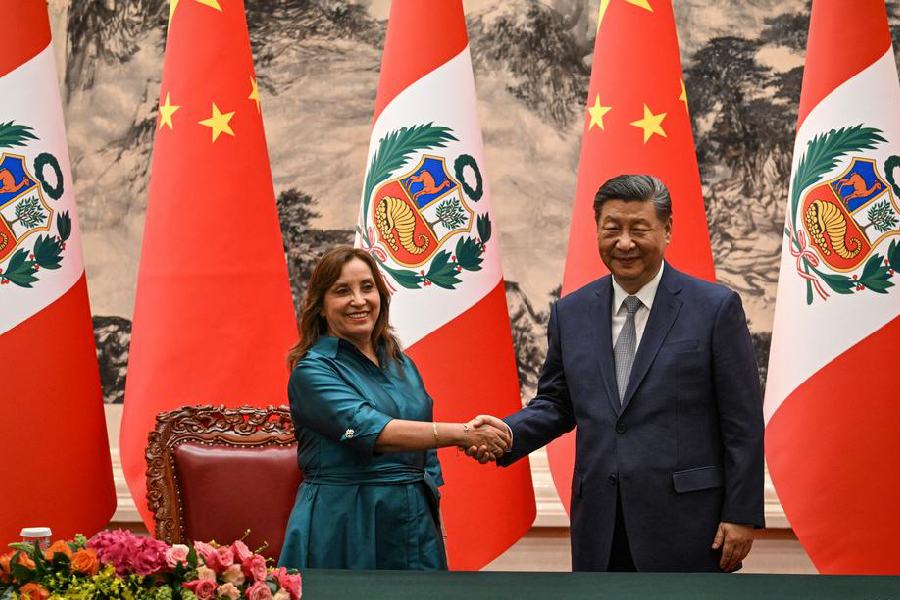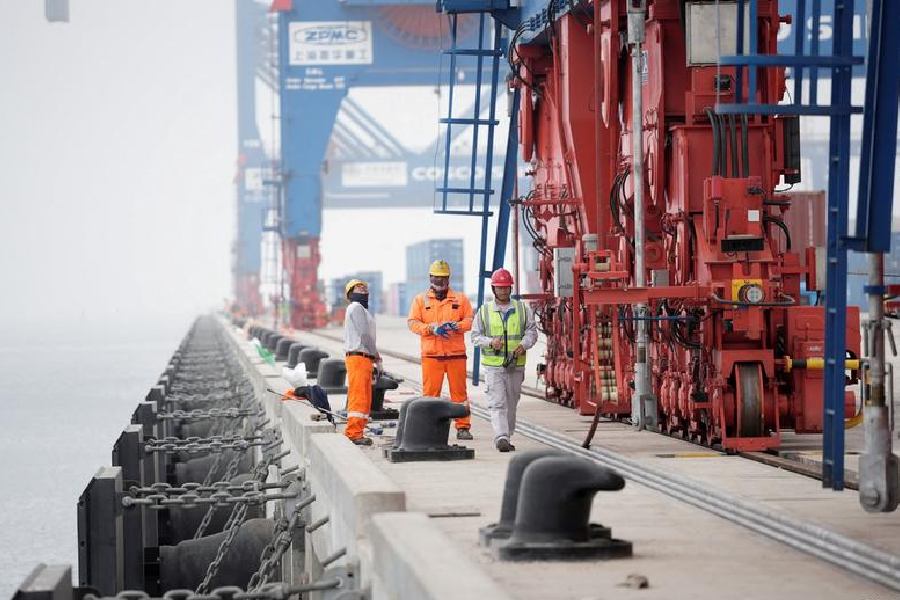Chinese President Xi Jinping inaugurated a massive deep-water port in Peru on Thursday, which he called a "21st-century maritime Silk Road."
The Chancay megaport, a $1.3 billion (€1.23 billion) investment from China, is transforming the quiet fishing town on Peru's coast and highlights China's growing influence in Latin America. It is South America's first Chinese-funded port.
"Considerable income and enormous job opportunities will be generated for Peru," Xi spoke in Lima with Peruvian President Dina Boluarte.
Xi said the Chancay project would generate $4.5 billion in annual revenues, create more than 8,000 jobs and reduce the logistics costs of the Peru-China route by 20%, in an opinion piece published in the El Peruano newspaper.
Boluarte welcomed the opportunity presented by the launch of the port and praised China for playing "a major role in the growth of our economy."
Making inroads into South America
The Chancay port, a major venture by Chinese shipping giant Cosco, aims to streamline trade between South America and Asia, and marks a significant step in China's Belt and Road Initiative, with the first ship due to set sail from the port next week.
By 2025, the port will dock some of the world's largest container ships.

Xi said the Chancay project in Peru would generate $4.5 billion in annual revenues, create more than 8,000 jobs. (Image: Jade Gao/AP/picture alliance via Deutsche Welle)
The megaport will also give China access to neighboring Brazil and exports such as soybeans and iron ore.
The port's inauguration comes as Beijing is turning toward resource-rich Latin America, amid trade tensions with Europe and concerns about future US tariffs on Chinese exports from the incoming Donald Trump administration.
Meanwhile, local fishermen and residents voiced concerns about the environmental impact and loss of traditional fishing zones due to the port.
"Our fishing spots no longer exist here. They destroyed them," said 78-year-old fisherman Julius Caesar. "I don't blame the Chinese for trying to mine this place for all it's worth. I blame our government for not protecting us."
Xi, Biden to meet one last time
Earlier this month, General Laura Richardson, former US Southern Command chief, warned that the Chinese military's navy could use Chancay for intelligence-gathering
Separately, the top US diplomat for Latin America, Brian Nichols, warned in Lima that Latin American nations must be vigilant on Chinese investment.
US concerns over Chancay reflect a broader shift as China exerts influence in South America to become the leading trade partner for countries like Peru, a region Washington once considered its sphere of influence.
"Chancay illustrates how China seeks secure access to resources and markets and its ever more successful fight to corner global value added," said Robert Evan Ellis, Latin America research professor at the US Army War College.
Thursday's inauguration comes as both US President Biden and Xi are due to hold talks Saturday in Lima on the sidelines of an Asia-Pacific summit.
China's state-backed Global Times wrote in an editorial published on Monday that the port was a "bridge for practical cooperation between China and Latin America and is by no means a tool for geopolitical competition", calling US accusations of the port's potential military use "smears".










